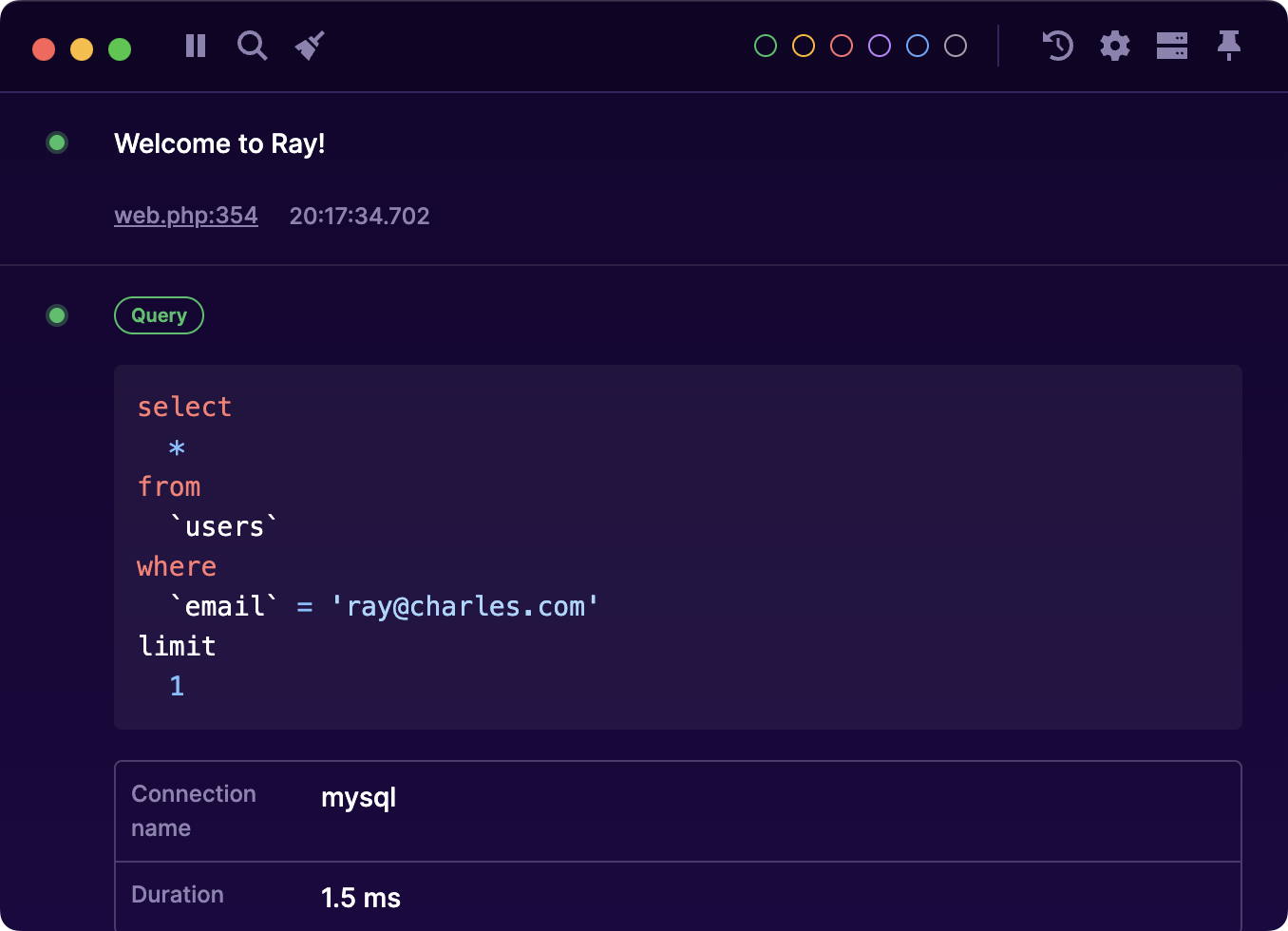Using Ray with Laravel
This page covers the Laravel-specific methods available in Ray. All generic PHP methods are also available in Laravel.
#Debugging queries
Sometimes you may want to log something to Ray and get the resulting return value of your closure instead of an instance of Ray. You can achieve this by adding a return value type to your closure. See the examples for showQueries() and countQueries() below.
#Showing queries
You can display all queries that are executed by calling showQueries (or queries).
ray()->showQueries(); // This query will be displayed in Ray. User::firstWhere('email', 'john@example.com');
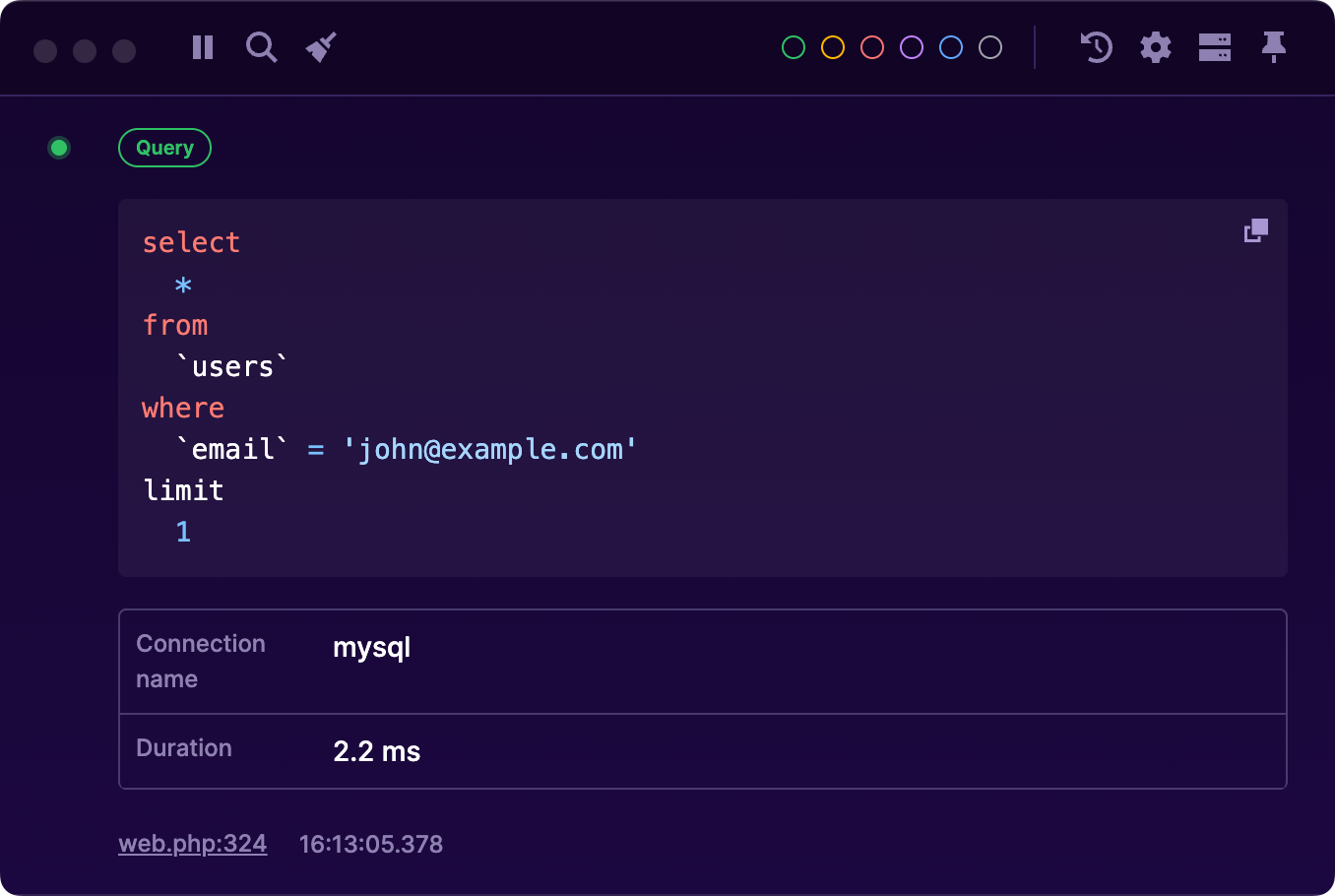
To stop showing queries, call stopShowingQueries.
ray()->showQueries(); // This query will be displayed. User::firstWhere('email', 'john@example.com'); ray()->stopShowingQueries(); // This query won't be displayed. User::firstWhere('email', 'jane@example.com');
Alternatively, you can pass a callable to showQueries. Only the queries performed inside that callable will be displayed in Ray. If you include a return type in the callable, the return value will also be returned.
// This query won't be displayed. User::all(); ray()->showQueries(function() { // This query will be displayed. User::all(); }); $users = ray()->showQueries(function (): Illuminate\Support\Collection { // This query will be displayed and the collection will be returned. return User::all(); }); User::all(); // this query won't be displayed.
#Conditional queries
You may want to only show queries if a certain condition is met. You can pass a closure that will receive QueryExecuted to showConditionalQueries.
// When a binding contains 'joan', the query will be displayed. ray()->showConditionalQueries(fn (QueryExecuted $query) => Arr::first( $query->bindings, fn ($binding) => Str::contains($binding, 'joan') ) );
This is particularly helpful when dealing with many queries during migrations or data manipulation.
Convenience methods are available for select, insert, update, and delete queries.
ray()->showInsertQueries(); // Insert queries will be displayed. ray()->stopShowingInsertQueries(); // Update queries will be displayed during execution of handleUpdate(). ray()->showUpdateQueries(fn () => $this->handleUpdate()); // Select queries will be displayed. ray()->showSelectQueries(); // Delete queries will be displayed. ray()->showDeleteQueries();
Additionally, these can be enabled in the config file.
#Counting queries
If you're interested in how many queries a given piece of code executes, and what the runtime of those queries is, you can use countQueries. It expects you to pass a closure in which all the executed queries will be counted.
Similar to showQueries, you can also add a return type to your closure to return the result of the closure.
ray()->countQueries(function() { User::all(); User::all(); User::all(); }); $user = ray()->countQueries(function (): User { return User::where('condition', true)->first(); });
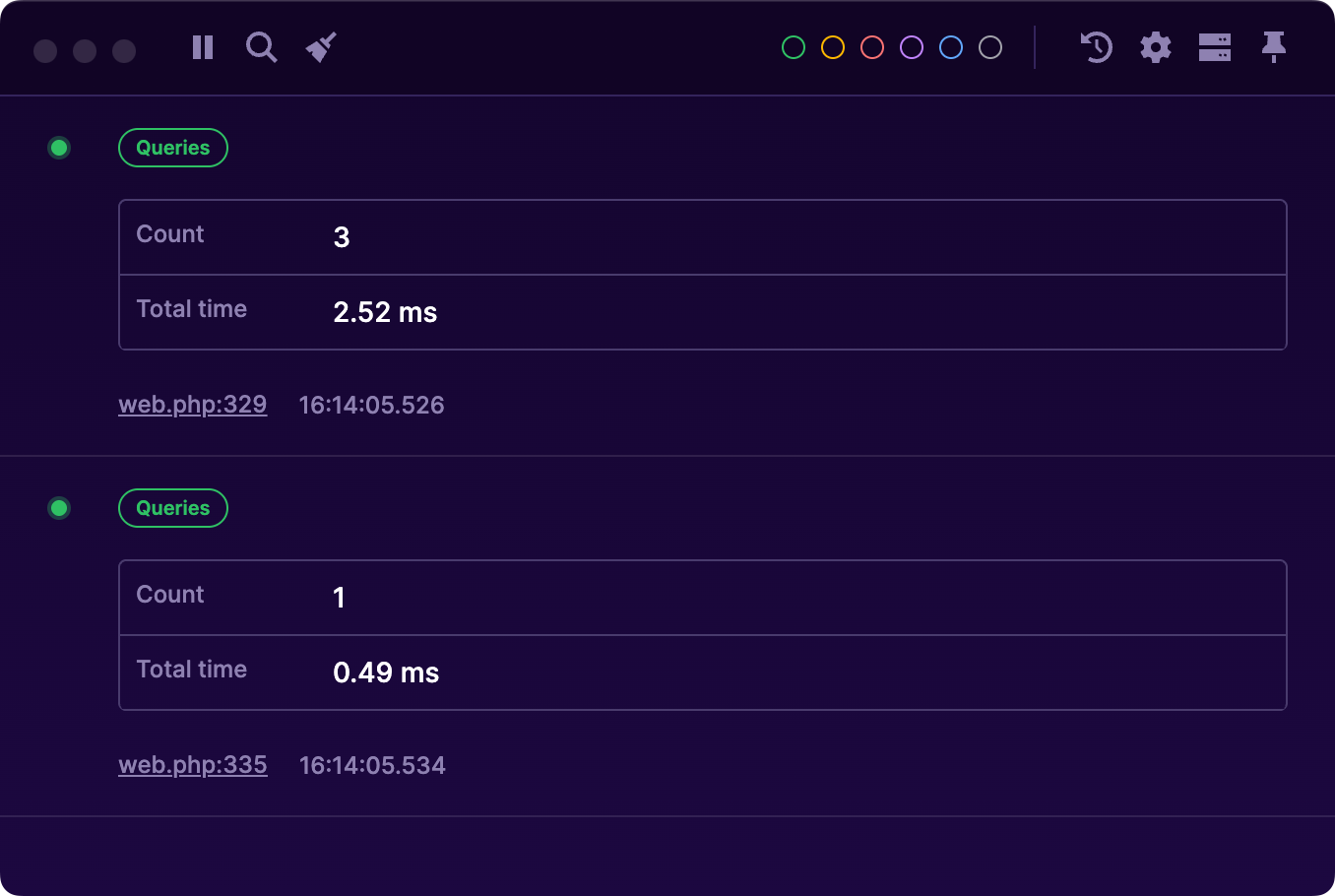
#Manually showing a query
You can manually send a query to Ray by calling ray() on a query.
User::query() ->where('email', 'john@example.com') ->ray() ->first();
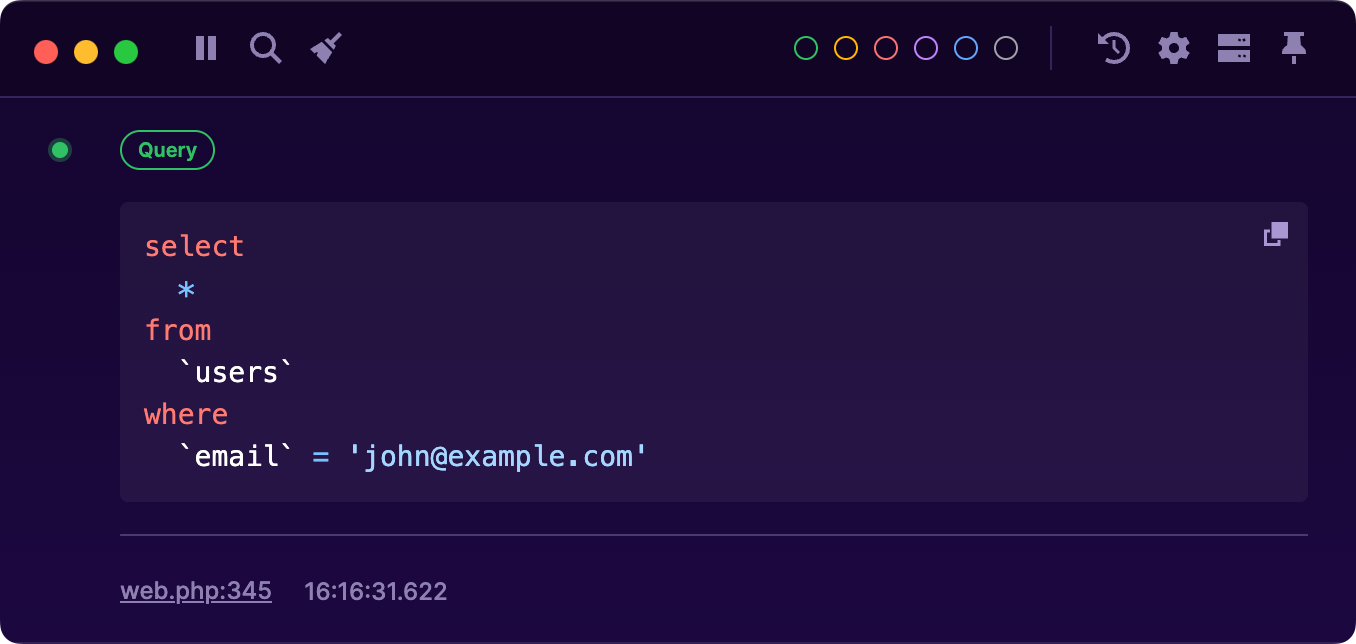
You can call ray() multiple times to see how a query is being built up.
User::query() ->where('name', 'John') ->ray() ->whereDate('email_verified_at', '2024-02-15') ->ray() ->first();
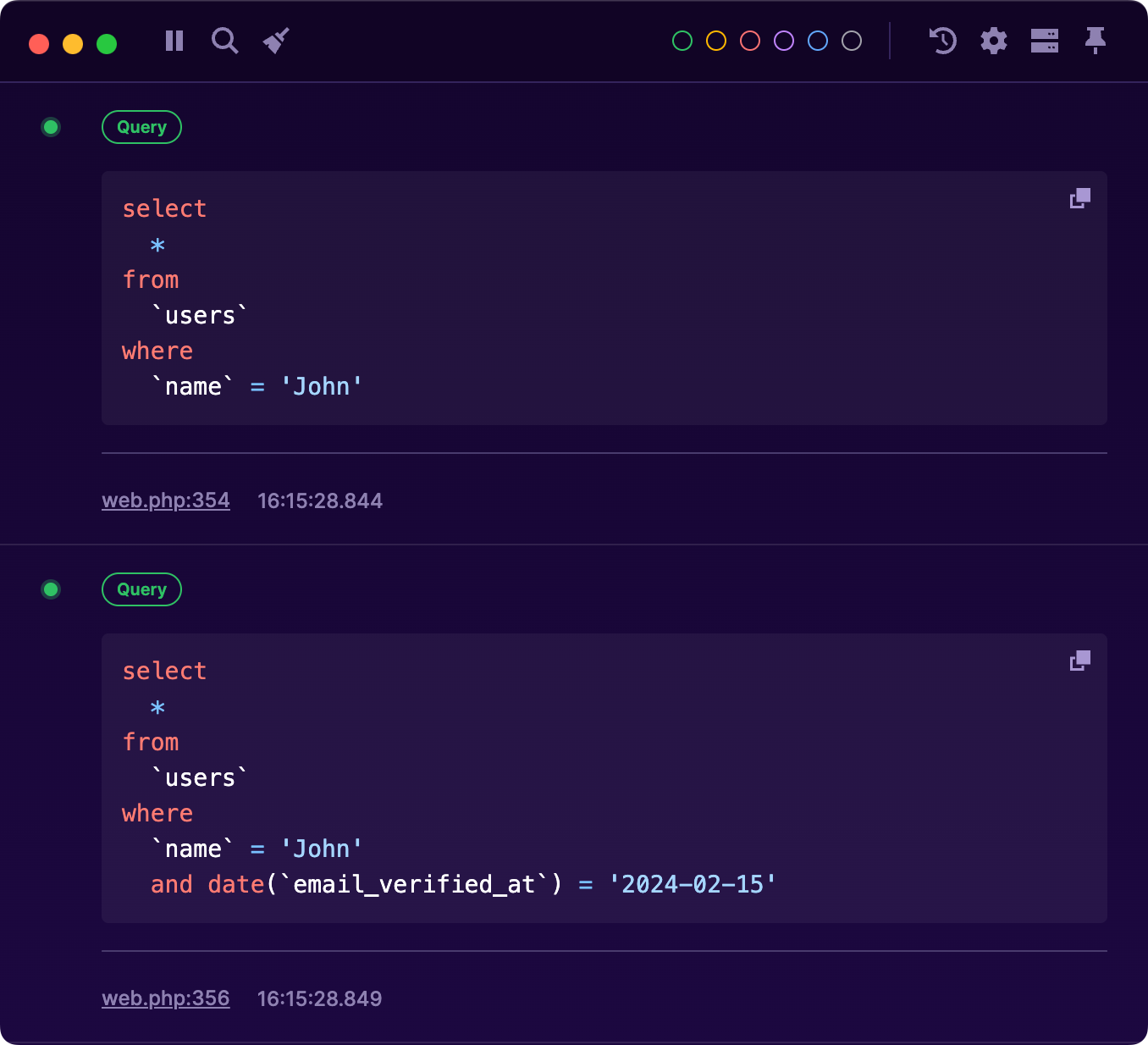
#Showing duplicate queries
You can display all duplicate queries by calling showDuplicateQueries.
ray()->showDuplicateQueries(); // This query won't be displayed in Ray. User::firstWhere('email', 'john@example.com'); // This query will be displayed in Ray. User::firstWhere('email', 'john@example.com');
To stop showing duplicate queries, call stopShowingDuplicateQueries.
Alternatively, you can pass a callable to showDuplicateQueries. Only the duplicate queries performed inside that callable will be displayed in Ray.
User::all(); // This query won't be displayed. User::all(); ray()->showDuplicateQueries(function() { User::where('id', 1)->get('id'); // This query will be displayed. User::where('id', 1)->get('id'); }); User::all(); // This query won't be displayed. User::all();
#Showing slow queries
You can display all queries that took longer than a specified number of milliseconds to execute by calling showSlowQueries.
ray()->showSlowQueries(100); // This query will only be displayed in Ray if it takes longer than 100ms to execute. User::firstWhere('email', 'john@example.com');
Alternatively, you can also pass a callable to showSlowQueries. Only the slow queries performed inside that callable will be displayed in Ray.
User::all(); // This query won't be displayed. User::all(); ray()->showSlowQueries(100, function() { // This query will be displayed if it takes longer than 100ms. User::where('id', 1)->get('id'); });
You can also use the shorthand method, slowQueries() which is the equivalent of calling showSlowQueries:
ray()->slowQueries();
To stop showing slow queries, call stopShowingSlowQueries.
#Debugging events & jobs
#Showing events
You can display all events that are executed by calling showEvents (or events).
ray()->showEvents(); event(new TestEvent()); event(new TestEventWithParameter('my argument'));
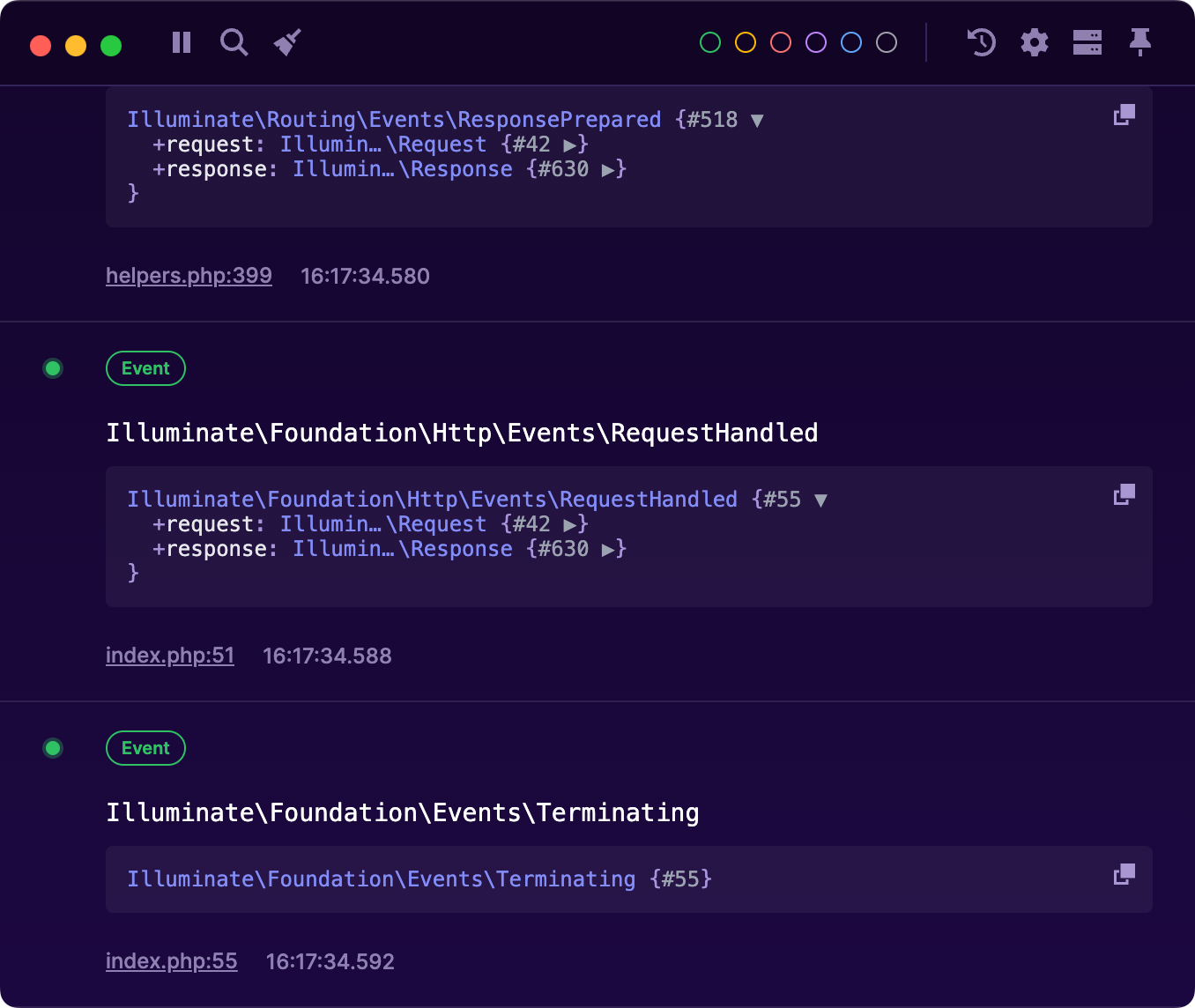
To stop showing events, call stopShowingEvents.
ray()->showEvents(); event(new MyEvent()); // this event will be displayed ray()->stopShowingEvents(); event(new MyOtherEvent()); // this event won't be displayed.
Alternatively, you can pass a callable to showEvents. Only the events fired inside that callable will be displayed in Ray.
event(new MyEvent()); // this event won't be displayed. ray()->showEvents(function() { event(new MyEvent()); // this event will be displayed. }); event(new MyEvent()); // this event won't be displayed.
#Showing jobs
You can display all jobs that are executed by calling showJobs (or jobs).
ray()->showJobs(); dispatch(new TestJob('my-test-job'));
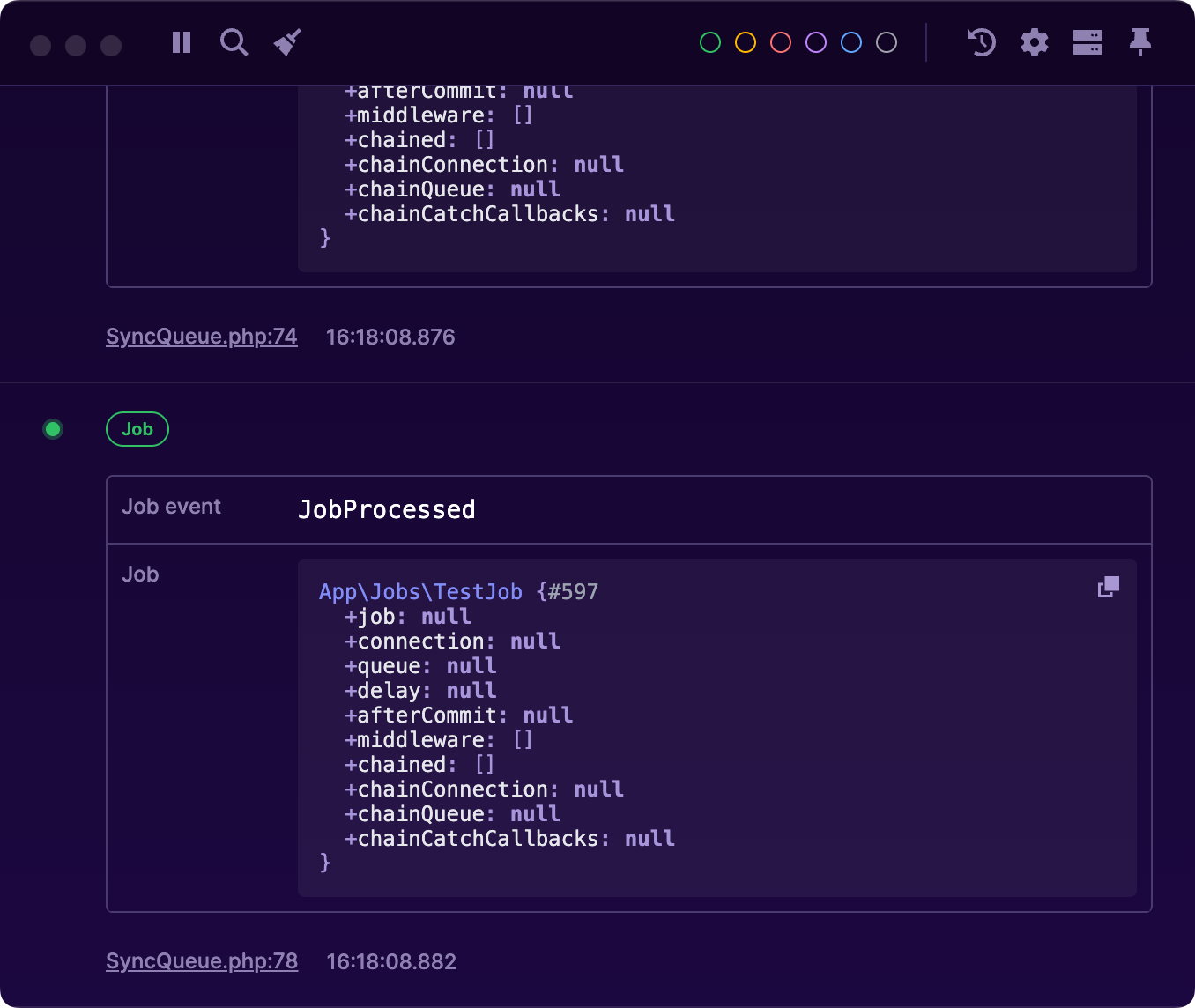
To stop showing jobs, call stopShowingJobs.
ray()->showJobs(); dispatch(new TestJob()); // this job will be displayed ray()->stopShowingJobs(); dispatch(new MyTestOtherJob()); // this job won't be displayed.
Alternatively, you can pass a callable to showJobs. Only the jobs dispatch inside that callable will be displayed in Ray.
event(new TestJob()); // this job won't be displayed. ray()->showJobs(function() { dispatch(new TestJob()); // this job will be displayed. }); event(new TestJob()); // this job won't be displayed.
#Showing cache events
You can display all cache events using showCache.
ray()->showCache(); Cache::put('my-key', ['a' => 1]); Cache::get('my-key'); Cache::get('another-key');
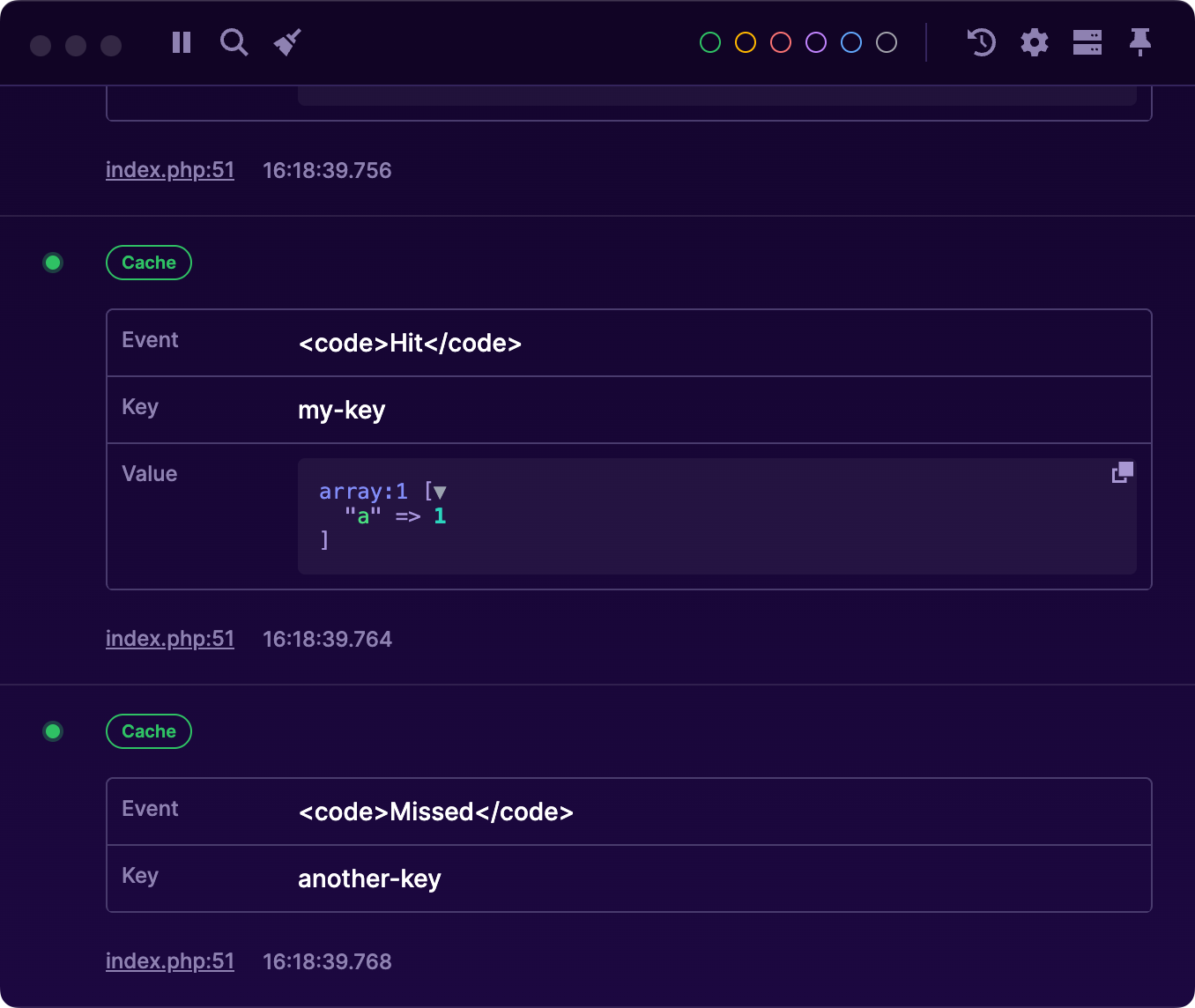
To stop showing cache events, call stopShowingCache.
#Working with models
#Handling models
Using the model function, you can display the attributes and relations of a model.
ray()->model($user);
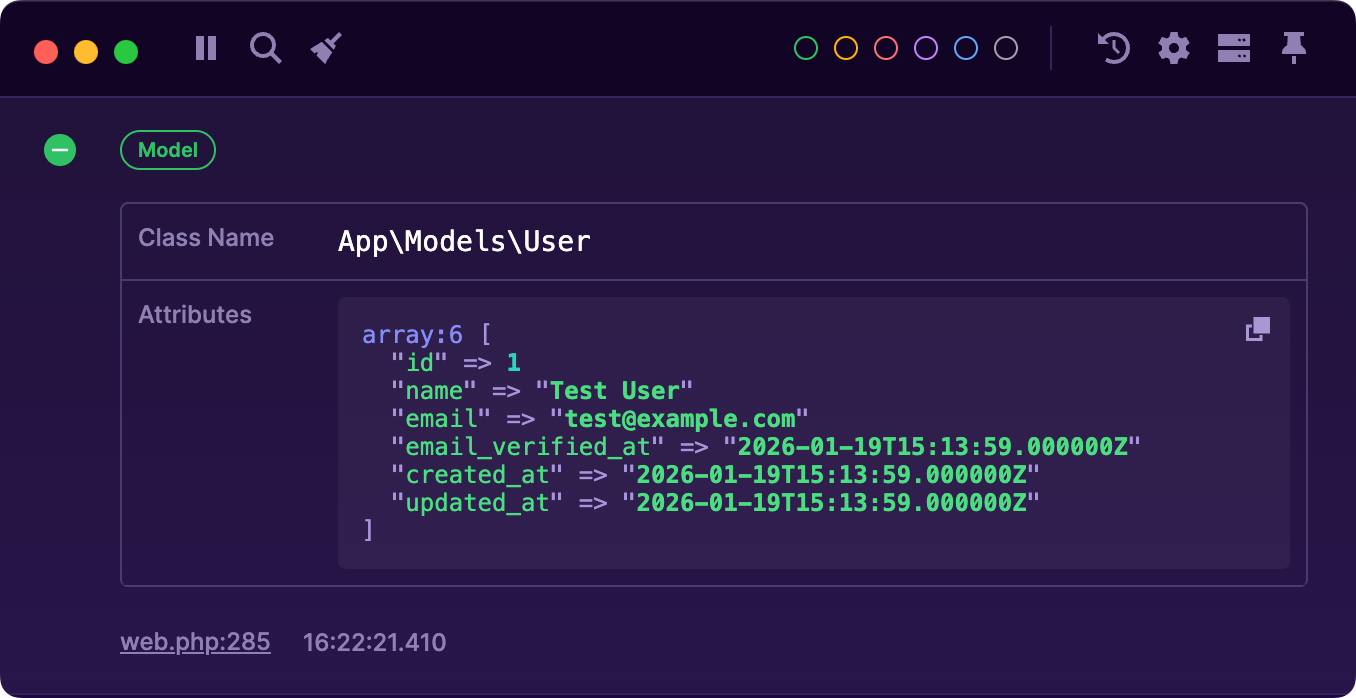
The model function can also accept multiple models and even collections.
// all of these models will be displayed in Ray ray()->model($user, $anotherUser, $yetAnotherUser); // all models in the collection will be display ray()->model(User::all()); // all models in all collections will be displayed ray()->model(User::all(), OtherModel::all());
Alternatively, you can use models() which is an alias for model().
#Displaying collections
Ray automatically registers a 'ray' collection macro, making it easy to send collections to Ray.
collect(['a', 'b', 'c']) ->ray('original collection') // displays the original collection ->map(fn(string $letter) => strtoupper($letter)) ->ray('uppercased collection'); // displays the modified collection
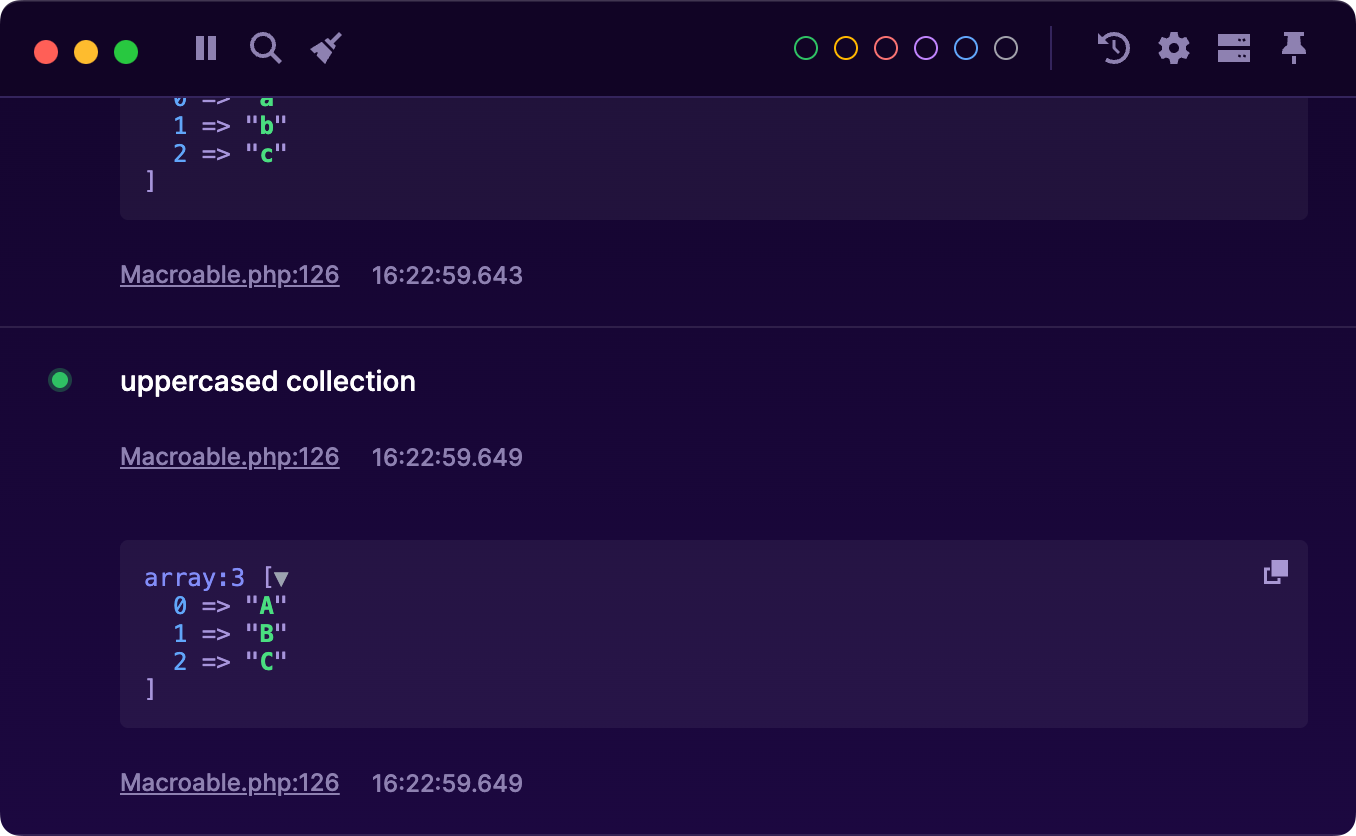
#Displaying context
Laravel 11 introduced the ability to set context.
You can display all context using Ray's context method.
ray()->context(); // displays all context ray()->context('key', 'key2'); // displays only the given keys
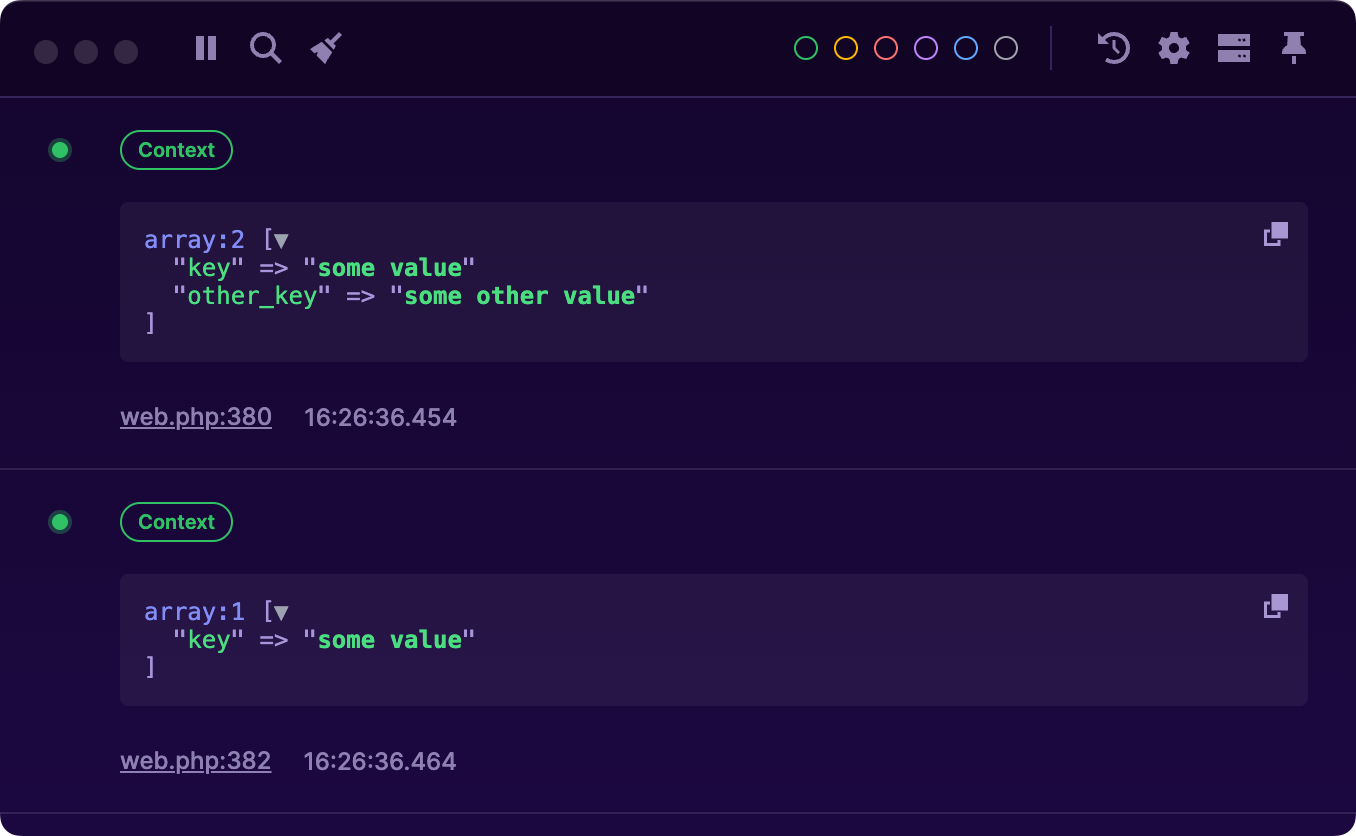
Context can also be invisible. You can display those values using the hiddenContext method.
ray()->hiddenContext(); // displays all hidden context ray()->hiddenContext('key', 'key2'); // displays only the given hidden keys
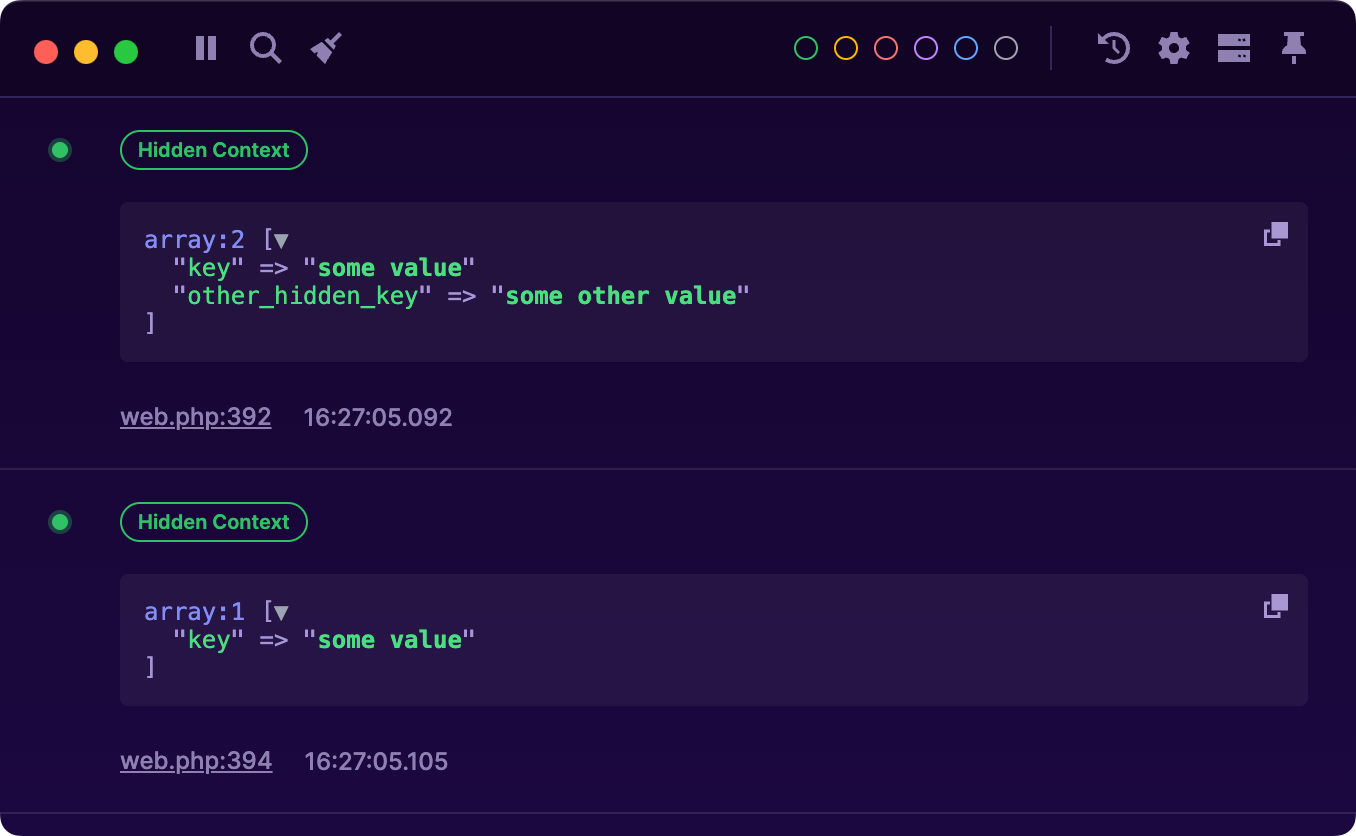
#Rendering & views
#Showing which views are rendered
You can display all views that are rendered by calling showViews.
ray()->showViews(); // typically you'll do this in a controller view('welcome', ['name' => 'John Doe'])->render();
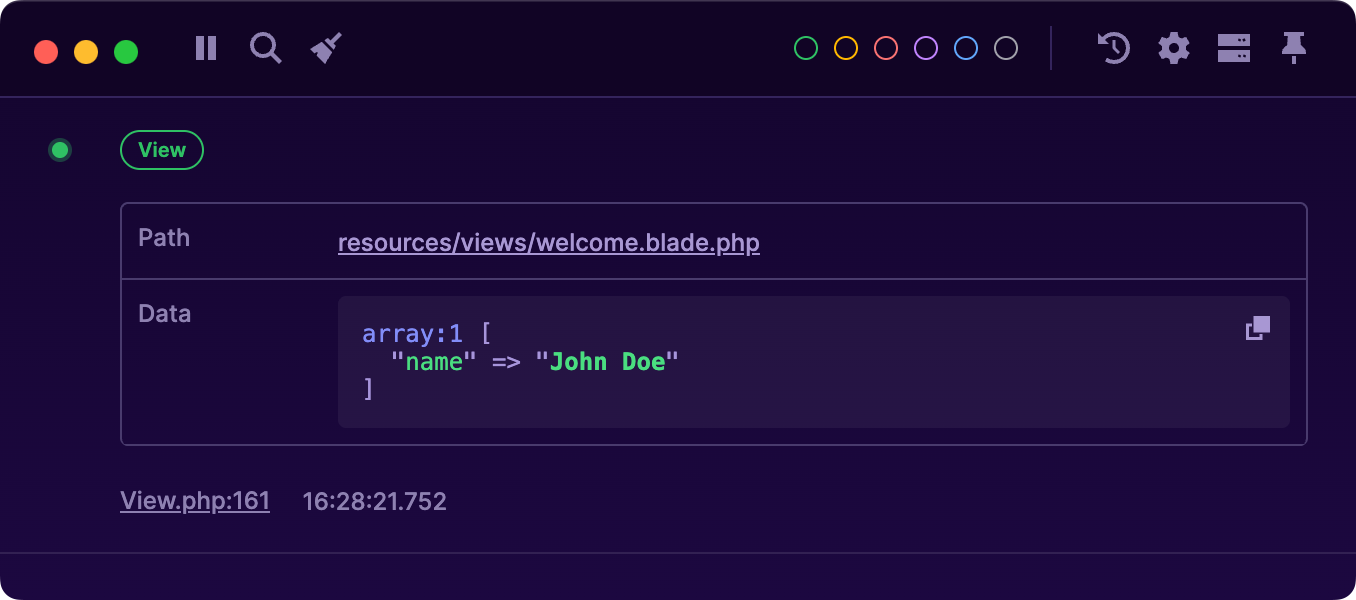
To stop showing views, call stopShowingViews.
#Using Ray in Blade views
You can use the @ray directive to easily send variables to Ray from inside a Blade view. You can pass as many things as you'd like.
@ray($variable, $anotherVariables)
You can use the @xray directive to show all variables available in your Blade file.
You can use the @measure directive as a shortcut for the ray()->measure() method to measure the time and memory it takes to render content in your view.
@measure @php(sleep(4)) @measure
This will result in the following output:
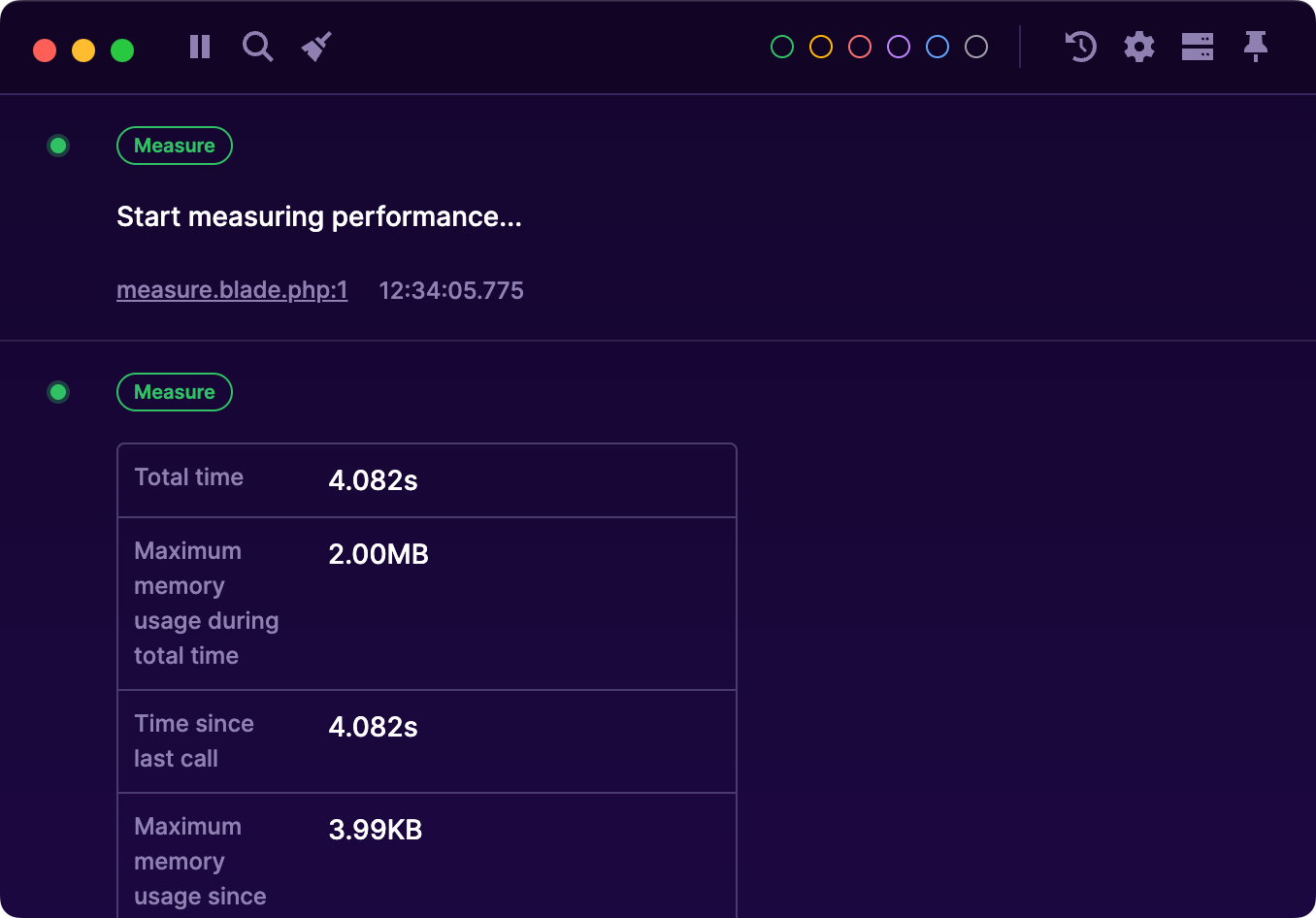
#Displaying mailables
Mails that are sent to the log mailer are automatically shown in Ray, you can also display the rendered version of a specific mailable in Ray by passing a mailable to the mailable function.
ray()->mailable(new TestMailable());
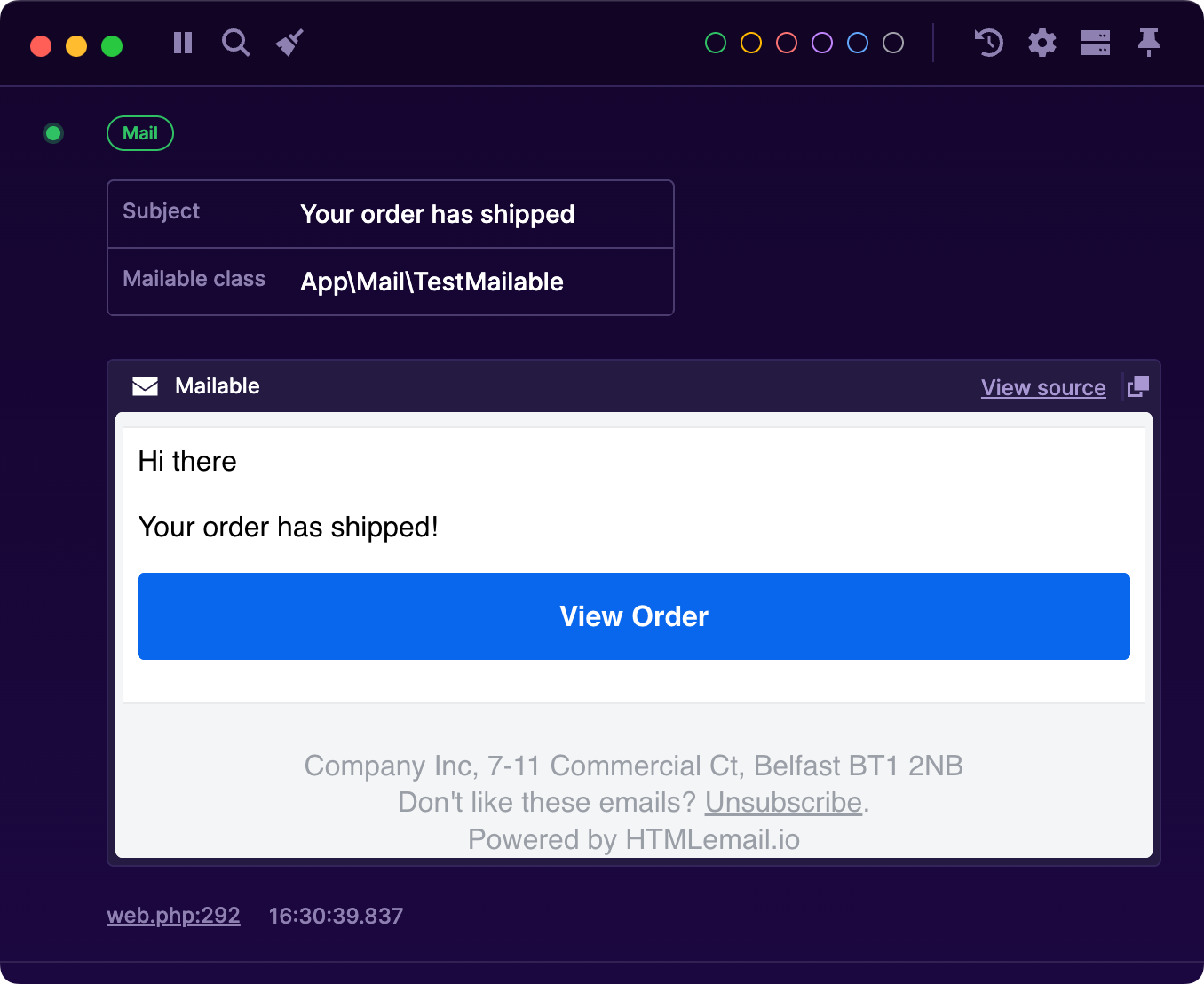
#Displaying markdown
View the rendered version of a markdown string in Ray by calling the markdown function.
ray()->markdown('# Hello World');
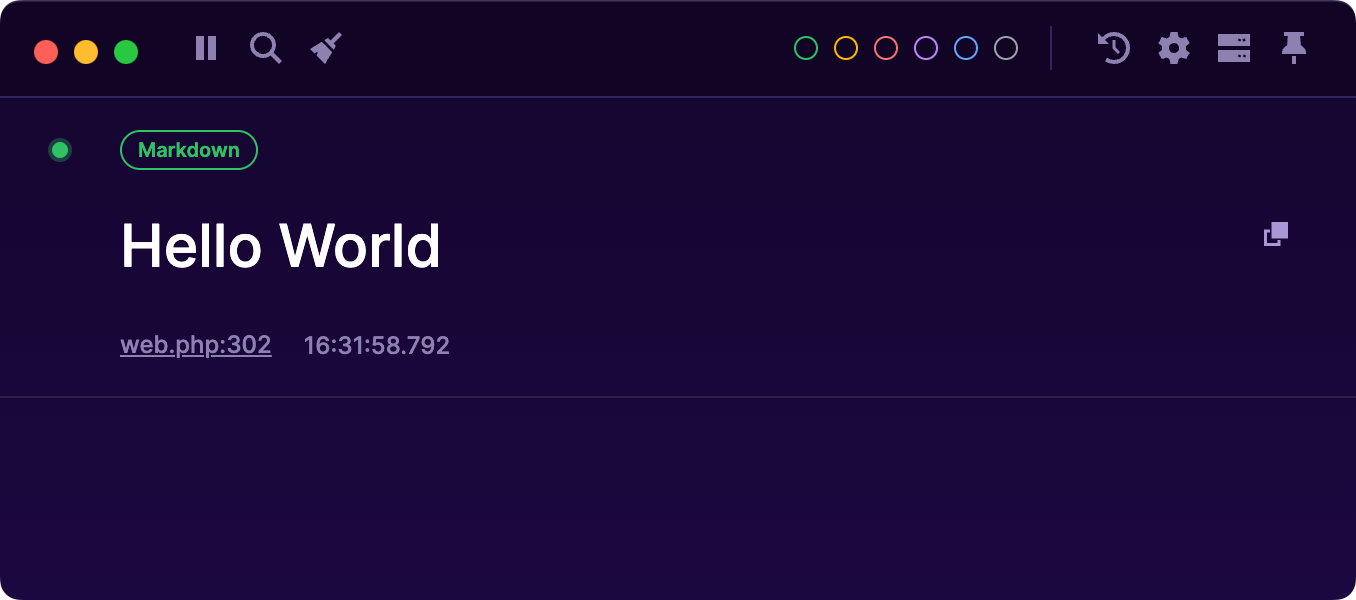
#Usage with a Stringable
Ray will automatically register a ray macro to Stringable to easily send Stringables to Ray.
Str::of('Lorem') ->append(' Ipsum') ->ray() ->append(' Dolor Sit Amen') ->ray();
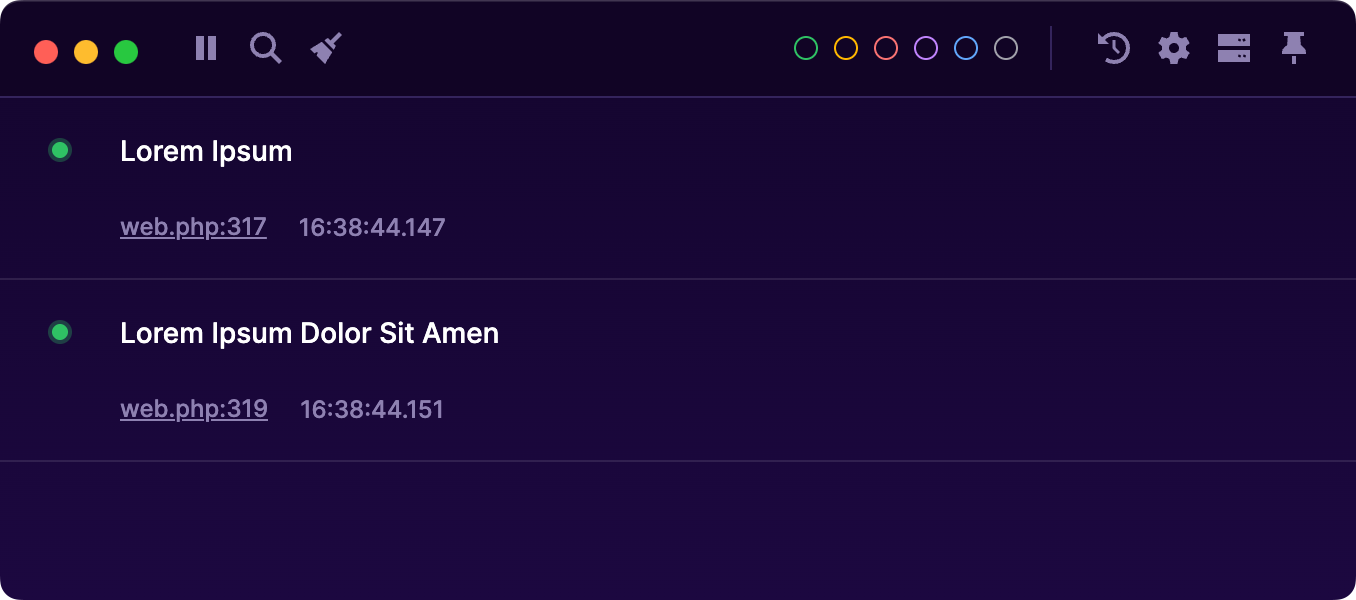
#Displaying environment variables
You can use the env() method to display all environment variables as loaded from your .env file. You may optionally pass an array of variable names to exclusively display.
ray()->env(); ray()->env(['APP_NAME', 'DB_DATABASE', 'DB_HOSTNAME', 'DB_PORT']);
#HTTP & testing
#Showing HTTP client requests
You can display all HTTP client requests and responses using showHttpClientRequests.
ray()->showHttpClientRequests(); Http::get('https://example.com/api/users');
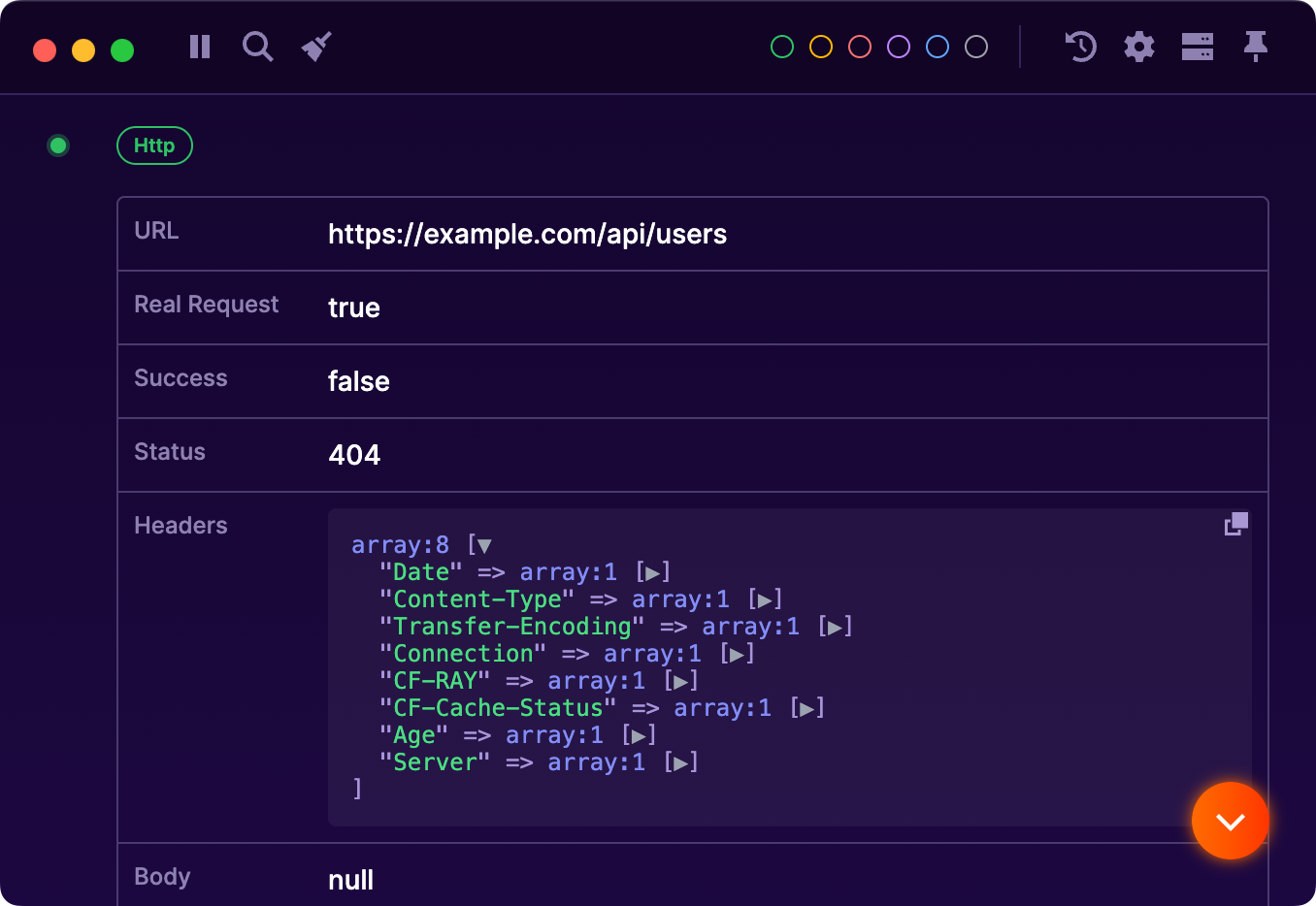
To stop showing HTTP client events, call stopShowingHttpClientRequests.
Alternatively, you can pass a callable to showHttpClientRequests. Only the HTTP requests made inside that callable will be displayed in Ray.
Http::get('https://example.com'); // this request won't be displayed. ray()->showHttpClientRequests(function() { Http::get('https://example.com'); // this request will be displayed. }); Http::get('https://example.com'); // this request won't be displayed.
#Using Ray with test responses
When testing responses, you can send a TestResponse to Ray using the ray() method. The method is chainable, so you can chain on any of Laravel's assertion methods.
To enable this behavior, enable the
send_requests_to_rayoption in the config file.
// somewhere in your app Route::get('api/my-endpoint', function () { return response()->json(['a' => 1]); }); // somewhere in a test /** test */ public function my_endpoint_works_correctly() { $this ->get('api/my-endpoint') ->ray() ->assertSuccessful(); }


